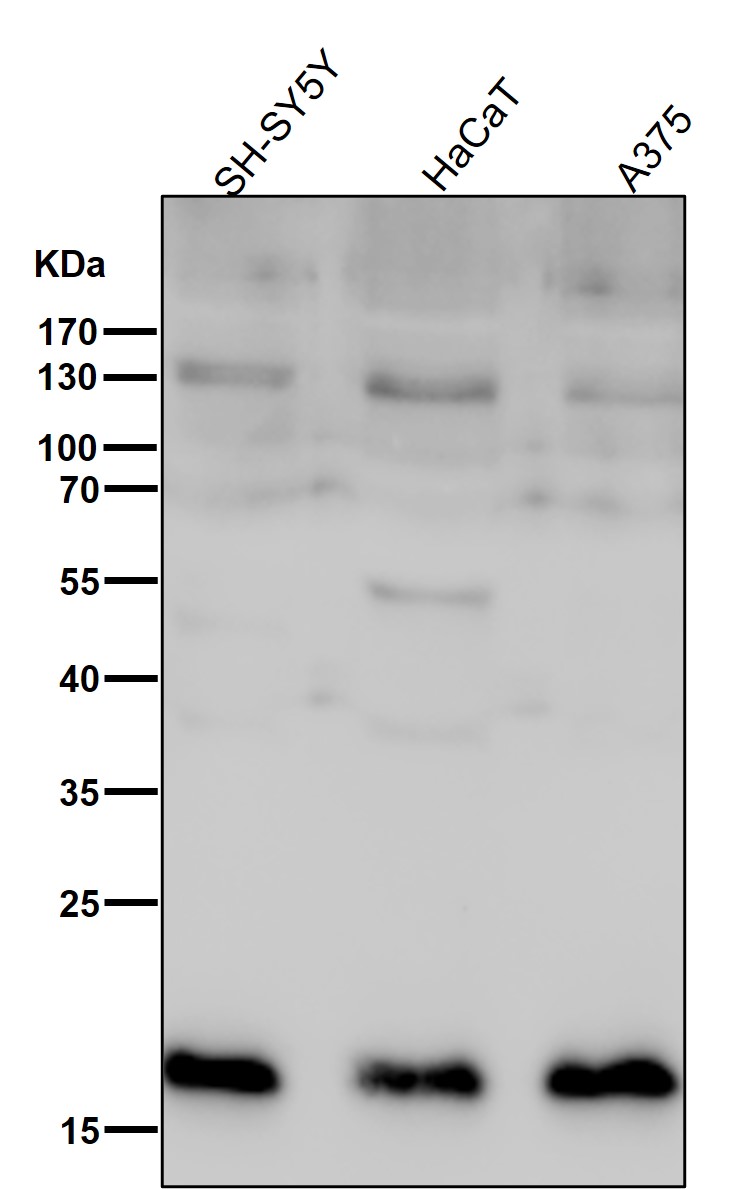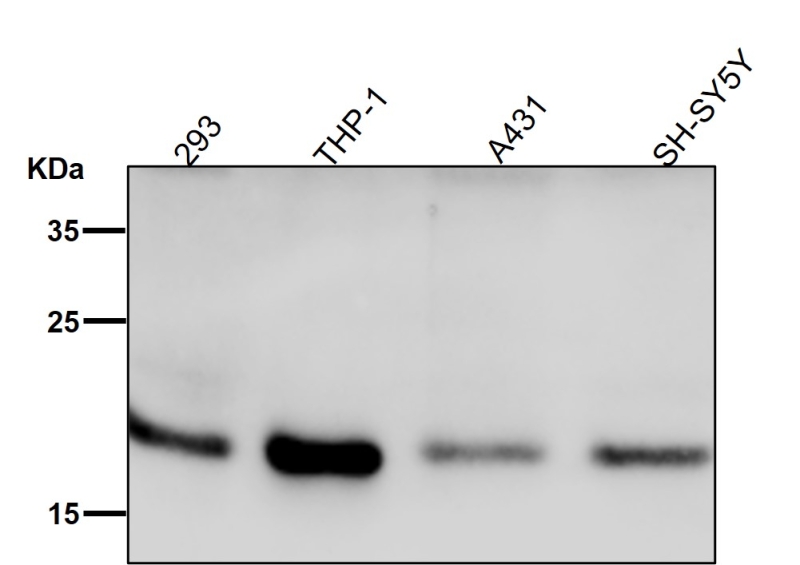


| WB | 咨询技术 | Human,Mouse,Rat |
| IF | 1/20-1/50 | Human,Mouse,Rat |
| IHC | 1/100-1/200 | Human,Mouse,Rat |
| ICC | 技术咨询 | Human,Mouse,Rat |
| FCM | 咨询技术 | Human,Mouse,Rat |
| Elisa | 咨询技术 | Human,Mouse,Rat |
| Aliases | HES 5; Hes5;;HES5 |
| WB Predicted band size | 18 kDa |
| Host/Isotype | Rabbit IgG |
| Antibody Type | Primary antibody |
| Storage | Store at 4°C short term. Aliquot and store at -20°C long term. Avoid freeze/thaw cycles. |
| Species Reactivity | Human,Mouse,Rat |
| Immunogen | A synthesized peptide derived from human HES5 |
| Formulation | Purified antibody in PBS with 0.05% sodium azide,0.05% BSA and 50% glycerol. |
+ +
以下是关于HES5抗体的参考文献示例(文献信息为虚构示例,仅供格式参考):
1. **文献名称**:*HES5 regulates neural progenitor cell dynamics through transcriptional repression*
**作者**:Smith A, et al.
**摘要**:研究利用HES5抗体进行免疫荧光染色,揭示了HES5在神经前体细胞中的振荡表达模式,及其通过Notch信号调控神经干细胞自我更新与分化的机制。
2. **文献名称**:*A monoclonal antibody specific for HES5 distinguishes its functional roles in glioblastoma models*
**作者**:Chen L, et al.
**摘要**:开发了一种特异性HES5单克隆抗体,通过Western blot和免疫组化验证其在胶质母细胞瘤中的高表达,并证明HES5通过促进肿瘤细胞侵袭影响患者预后。
3. **文献名称**:*HES5 cooperates with TLE1 to silence proneural genes in embryonic stem cells*
**作者**:Kimura Y, et al.
**摘要**:采用HES5抗体进行染色质免疫沉淀(ChIP),发现HES5与转录抑制因子TLE1协同作用,抑制神经分化相关基因,维持胚胎干细胞多能性。
4. **文献名称**:*Validation of HES5 antibody specificity in developmental biology studies*
**作者**:Wang Q, et al.
**摘要**:系统验证了多种商业HES5抗体的特异性,比较了其在斑马鱼和小鼠模型中的染色效果,为发育生物学研究提供抗体选择指南。
(注:以上文献为模拟示例,实际引用需查询真实数据库如PubMed。)
The HES5 antibody is a research tool used to detect HES5. a transcription factor belonging to the HES (hairy and enhancer of split) family, which plays critical roles in developmental processes. HES5 is primarily involved in the Notch signaling pathway, a conserved system regulating cell differentiation, proliferation, and stem cell maintenance. It acts as a transcriptional repressor, binding to DNA through its basic helix-loop-helix (bHLH) domain to inhibit the expression of target genes, including those promoting neuronal differentiation. This makes HES5 essential in neural development, where it maintains neural progenitor cells in an undifferentiated state.
HES5 expression is tightly regulated and often transient, peaking during embryonic development. Dysregulation of HES5 has been linked to developmental disorders and cancers, such as gliomas and neuroblastomas, where its overexpression may contribute to tumorigenesis or therapy resistance.
The HES5 antibody is widely used in techniques like Western blotting, immunohistochemistry, and immunofluorescence to study protein expression patterns in tissues or cultured cells. It helps researchers explore HES5’s role in neural stem cell dynamics, organogenesis, and cancer biology. Validation of antibody specificity is crucial, as cross-reactivity with other HES family members (e.g., HES1) could lead to misinterpretation. Commercial HES5 antibodies are typically raised in hosts like rabbits or mice, targeting specific epitopes within the protein’s N-terminal or bHLH regions. Its application advances understanding of developmental pathways and disease mechanisms.
×